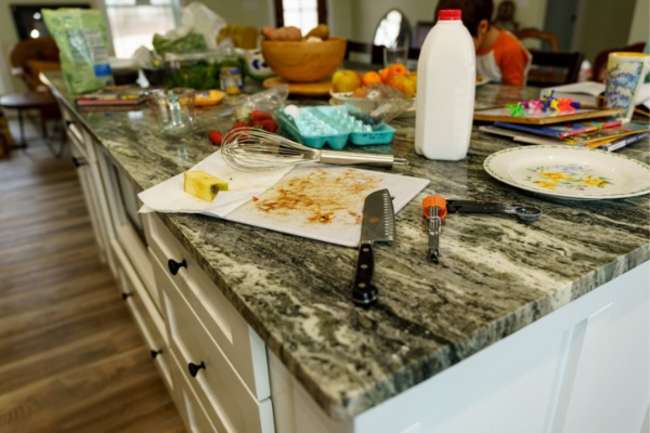We may earn revenue from the products available on this page and participate in affiliate programs. Learn More ›
Multipurpose, but not all-purpose
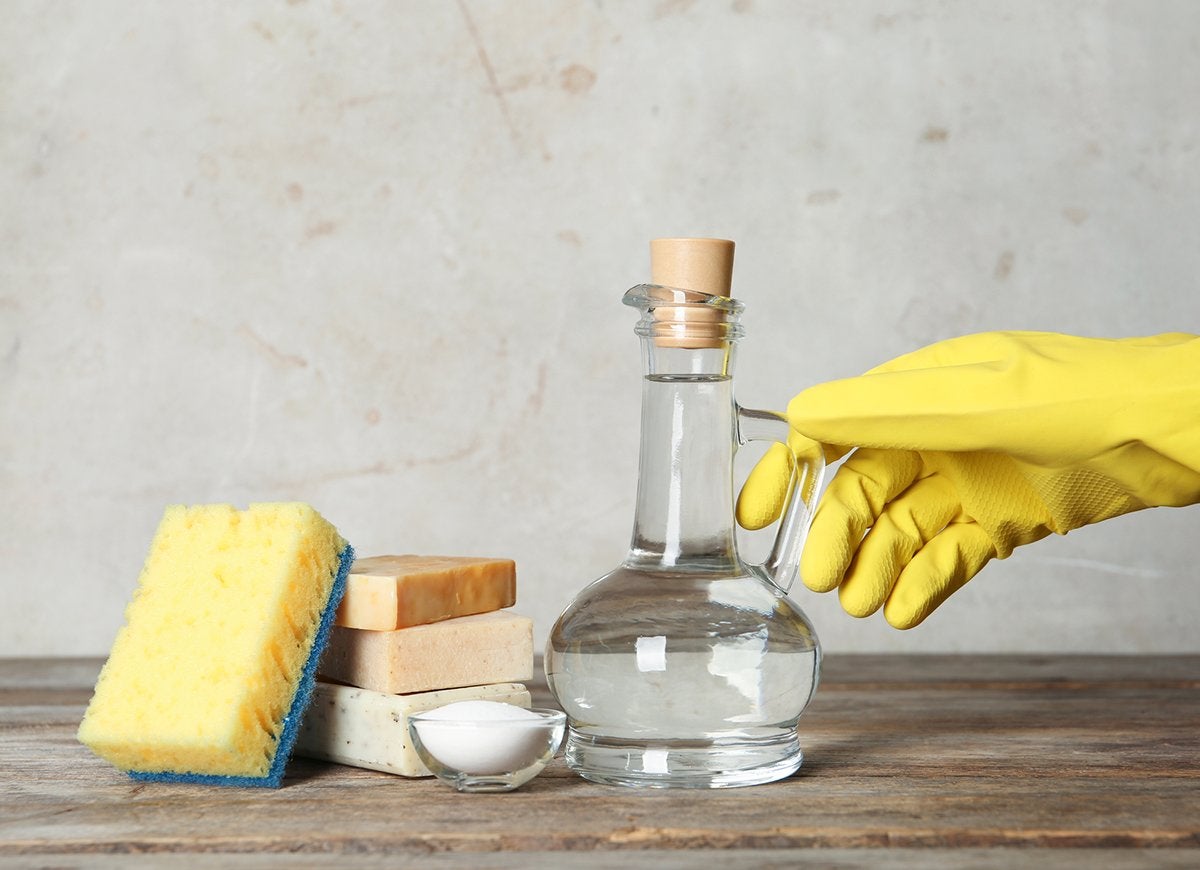
Countless bloggers and glossy magazines tout vinegar as a disinfecting powerhouse, and indeed, when diluted with water vinegar is an effective cleaning solution for plenty of spots around the house. Yet, while vinegar is great for certain cleaning tasks, such as descaling coffee makers, it’s not good at dealing with hard-set grime, and it can even damage some surfaces. Read on to find out what you should never clean with vinegar.
But first, a note of caution: Some people believe that mixing vinegar with other cleaning products will boost its cleaning power, but that’s rarely the case. In fact, mixing vinegar with certain products—for instance, bleach—can produce dangerous gases. Don’t mix cleaning products indiscriminately, and always exercise caution when you’re using multiple cleaning products at the same time.
Knives
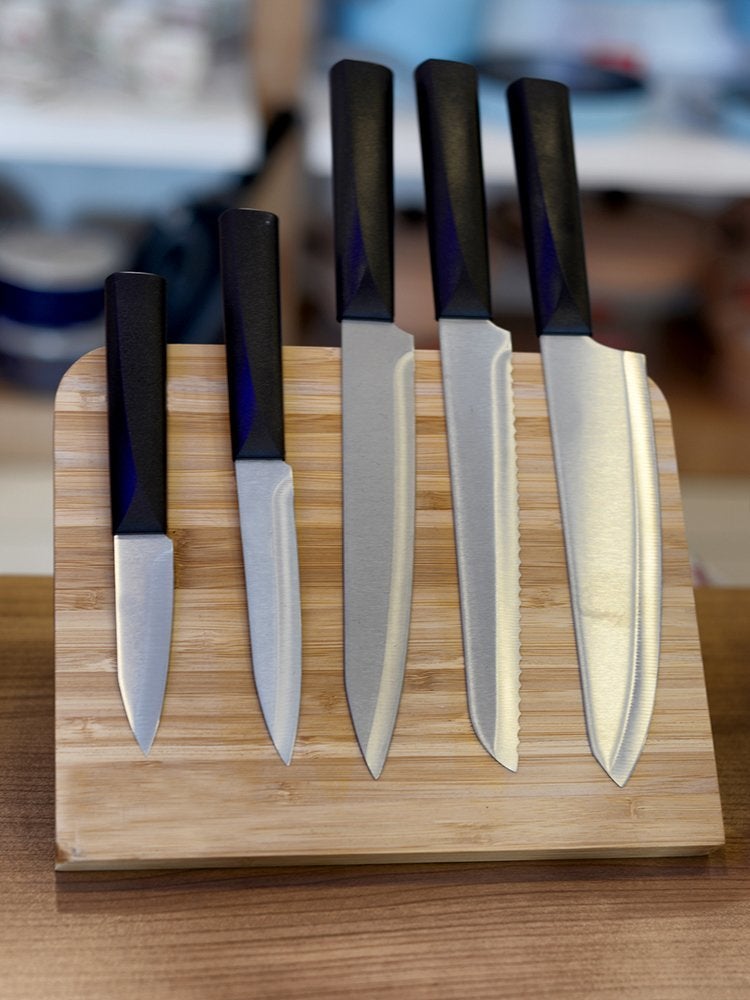
Cleaning your set of fancy kitchen knives with vinegar is a bad idea. The acid can corrode the metal and dull knife edges. Instead, wash your knives with soap and warm water, and always dry them thoroughly before putting them away.
RELATED: The Best Kitchen Knife Brands for Easier (and Safer) Cuts
Marble
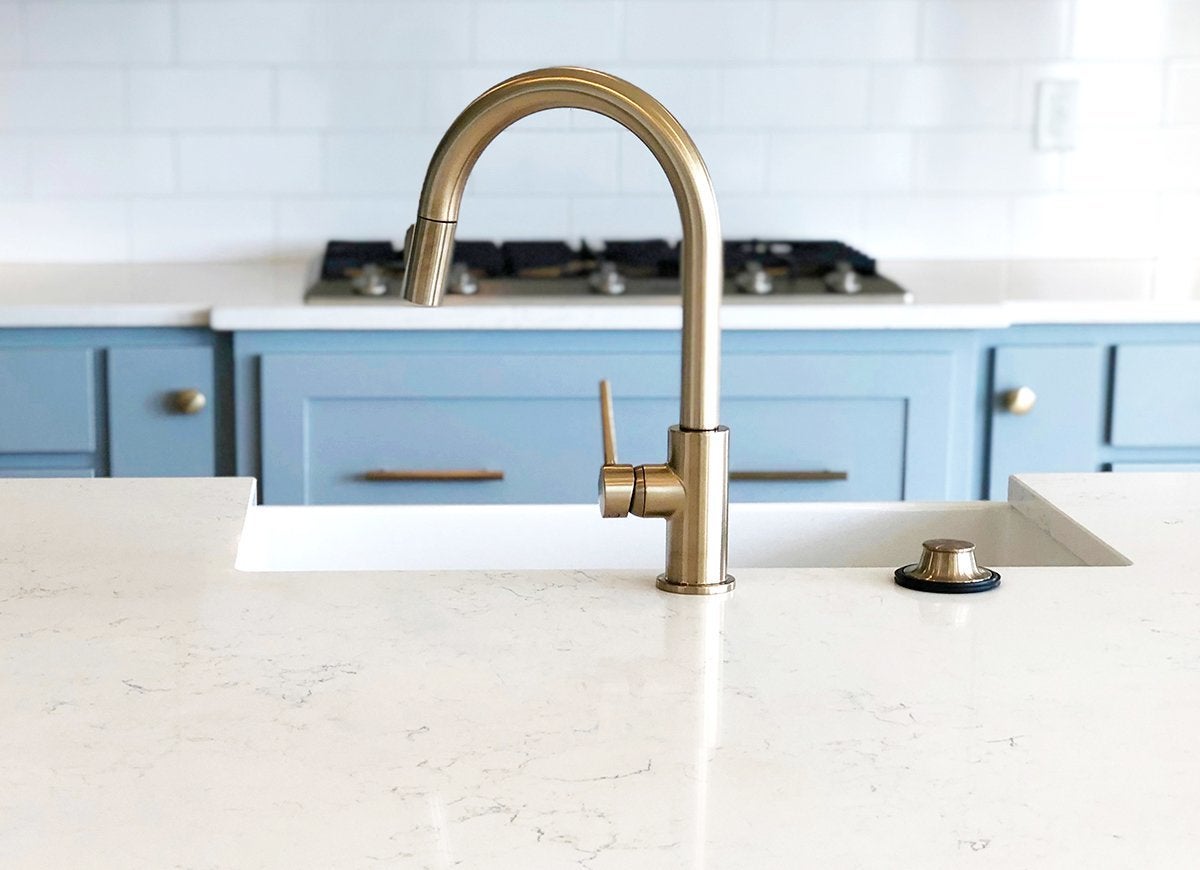
Stick to wiping down marble countertops with mild soap and a damp cloth. Vinegar will react with natural marble and cause defects in the surface, turning your high-end Carrara marble countertop into a pitted, lackluster mess. Avoid cleaning marble with bleach and other harsh chemicals as well.
Granite
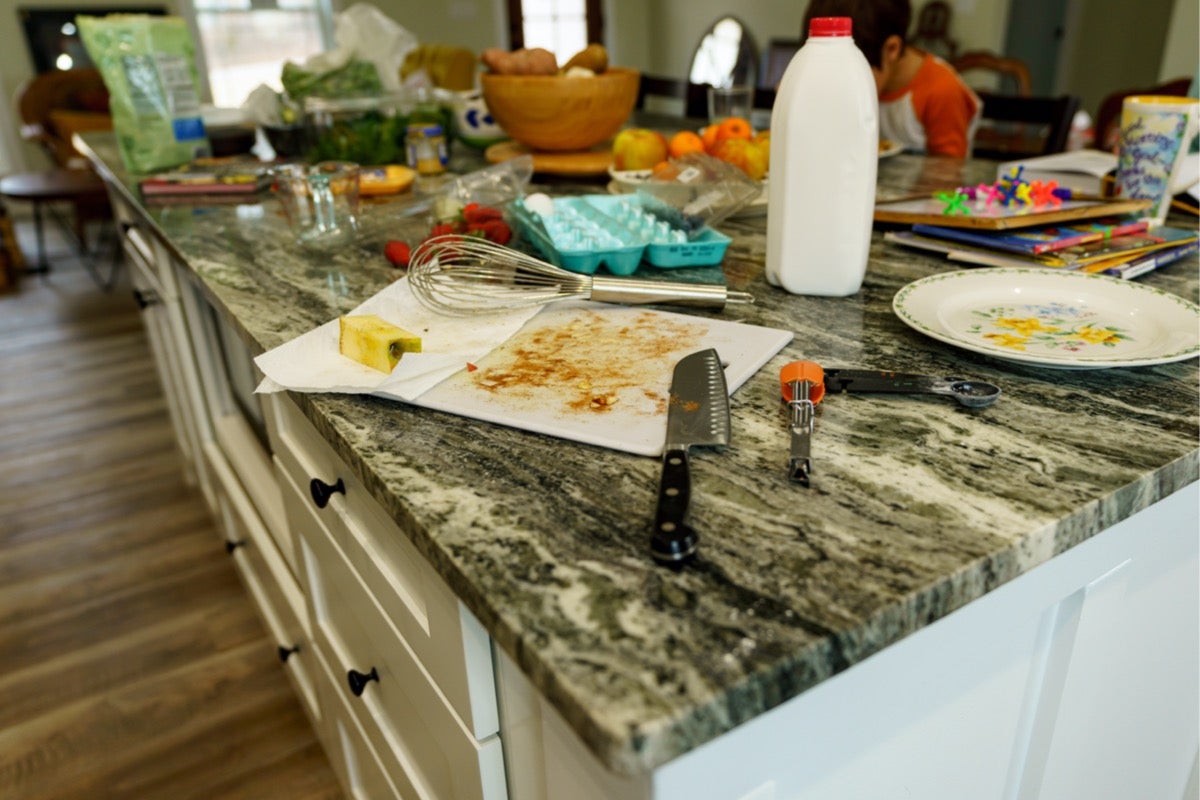
Granite is another natural stone surface that reacts poorly with vinegar. Spraying your granite countertops with a vinegar solution can make them dull and cause them to lose their shine over time. Also, despite granite’s durability, acidic substances—even acidic foods—can leave behind marks known as etching that require sanding and polishing to remove.
RELATED: How to Clean Granite Countertops
Ceramic tiles
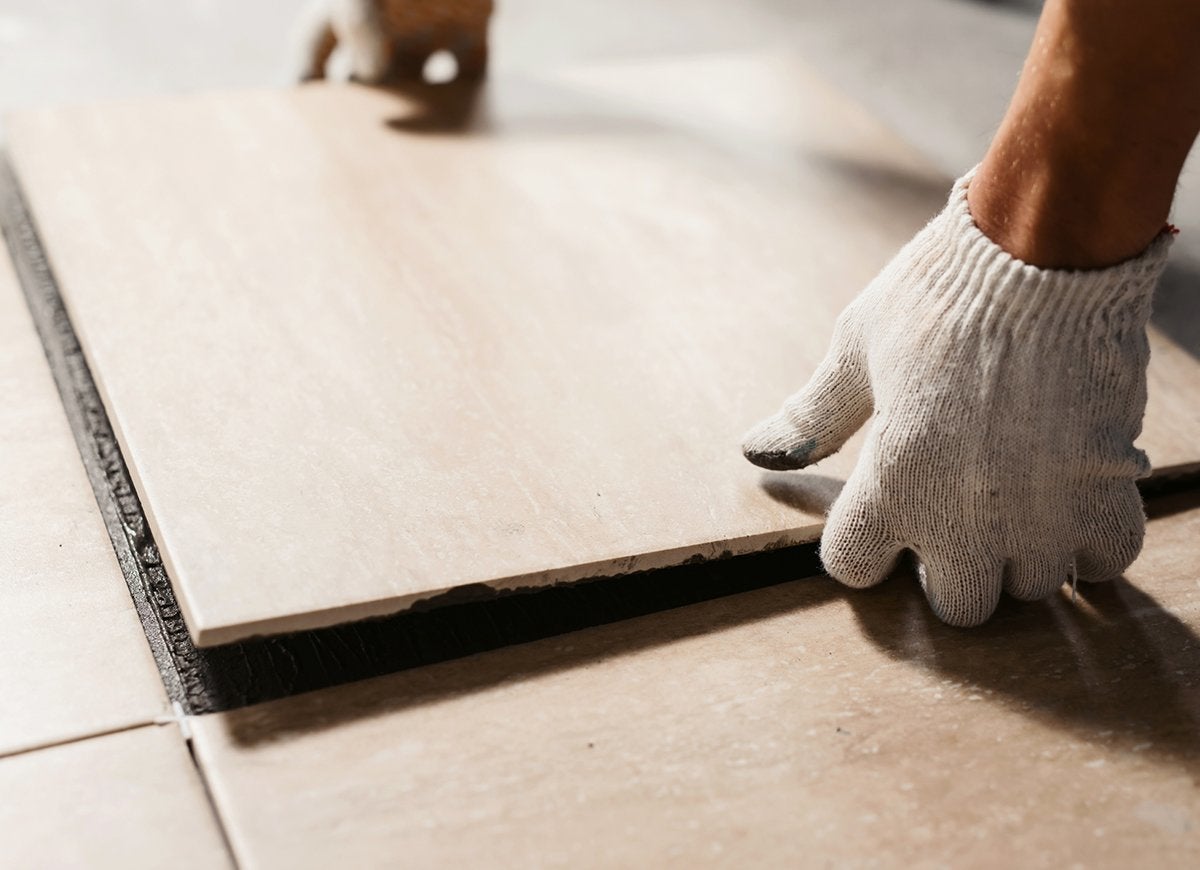
It’s important to clean up splatters and dirt on ceramic tiles promptly, whether on floors, walls, or backsplash, so stains don’t have a chance to set or harden. When you’re rushing to clean up a spill, avoid the vinegar and instead reach for hot water and gentle dish soap. While most tile can probably stand up to vinegar, the acidic liquid can eat into grout and dissolve the finish on tiles. Before using any soap or detergent, it’s best to read the manufacturer’s guidelines to find out if the product is recommended for tile.
Eggy spills
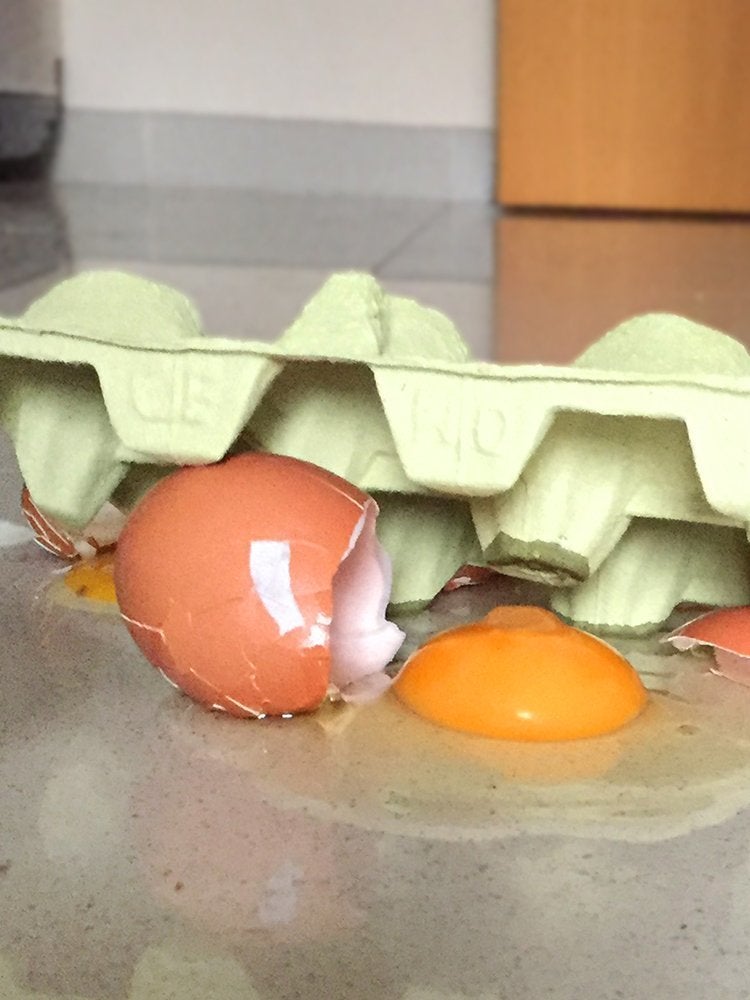
If you drop an egg or two while baking or making breakfast, hold off on spraying the sloppy mess with vinegar, which can cause the eggy goo to thicken and harden. Instead, use salt to help you pick up the spill.
Wood furniture
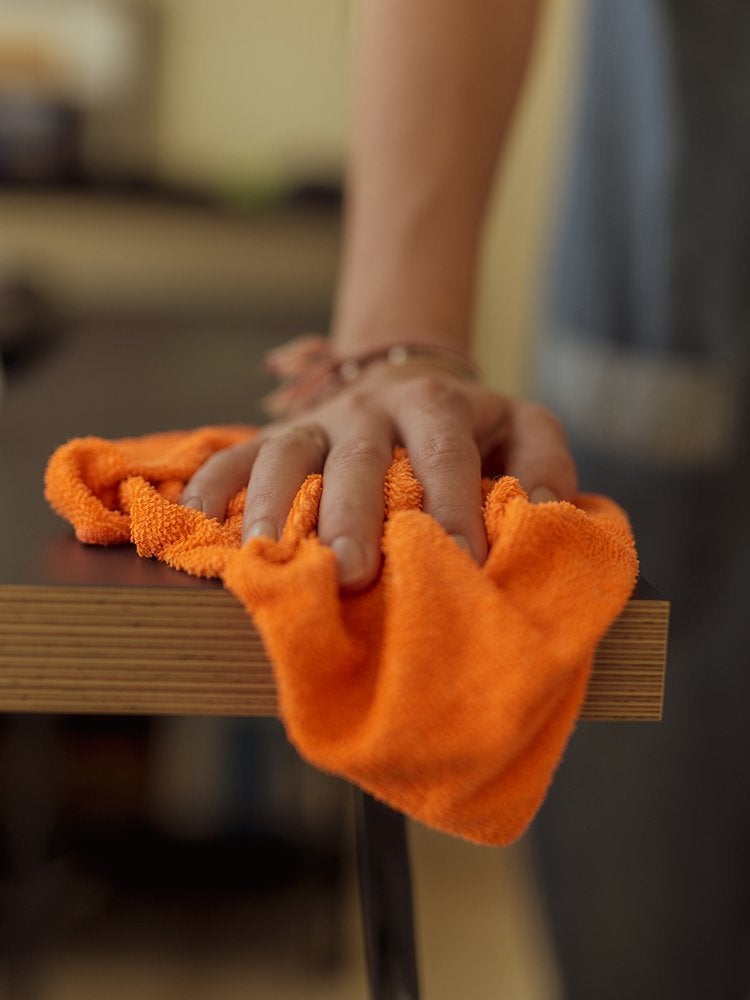
Never soak wood furniture in any of the numerous water-based cleaning solutions you can buy online. Ace Handyman Services discourages the use of undiluted vinegar on wood, which can leave streaks and eat away at some finishes. Instead, use a 50-50 mixture of oil and vinegar to polish finished wood furniture.
Dishwasher
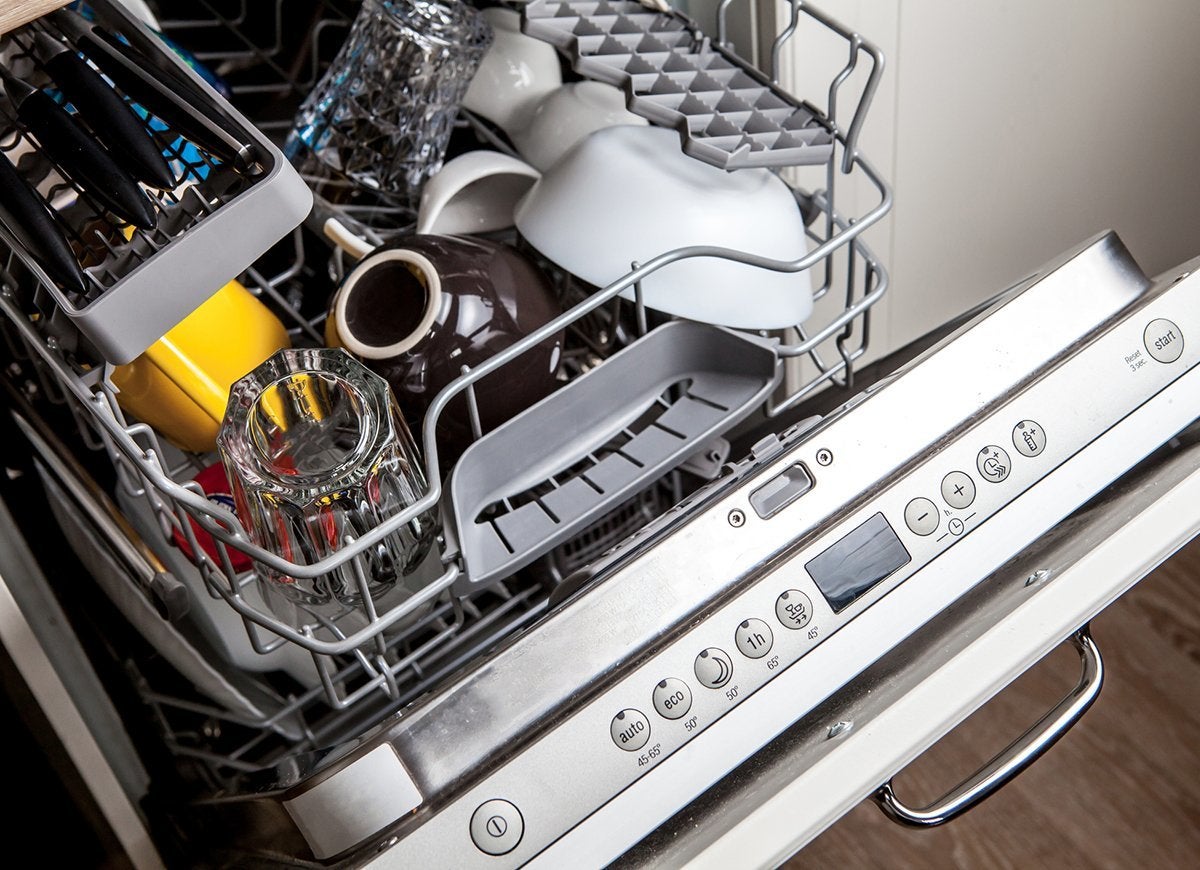
While vinegar may not destroy your dishwasher, it’s not an effective alternative to dishwasher cleaners. The acidic liquid might also react with some parts of the appliance and can, over time, cause rubber gaskets and hoses to deteriorate. Although vinegar is often suggested as a rinse aid, stick with products specifically designed for this purpose. If vinegar mixes with salty residue during the cycle, it can discolor metal dishware and utensils.
RELATED: How to Clean a Dishwasher
Phone and computer screens
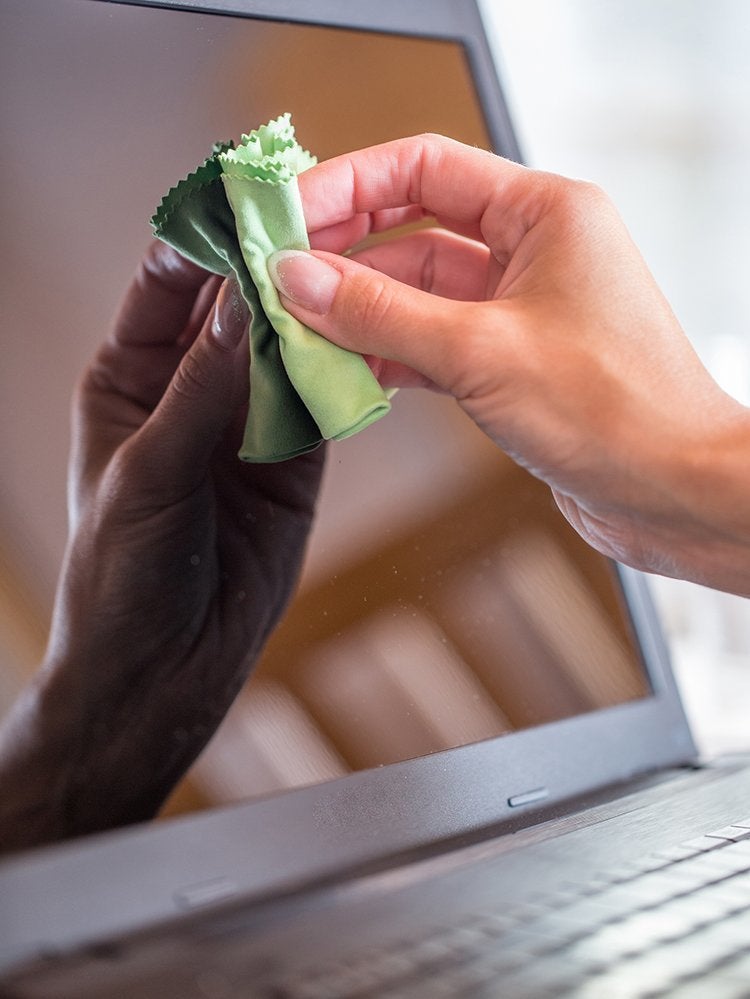
Vinegar can strip off the protective coating from your phone’s screen, and it’s not a good idea to use it on your computer’s screen, either. Instead, wipe the screens of your electronic devices with gentle microfiber cloths to get rid of dust and other particles. Isopropyl alcohol is effective at wiping out germs and nasty microbes, but always check manufacturers’ instructions for phone cleaning and maintenance first.
RELATED: The Best All-Purpose Cleaners to Make Your Entire Home Sparkle, Tested
Rubber
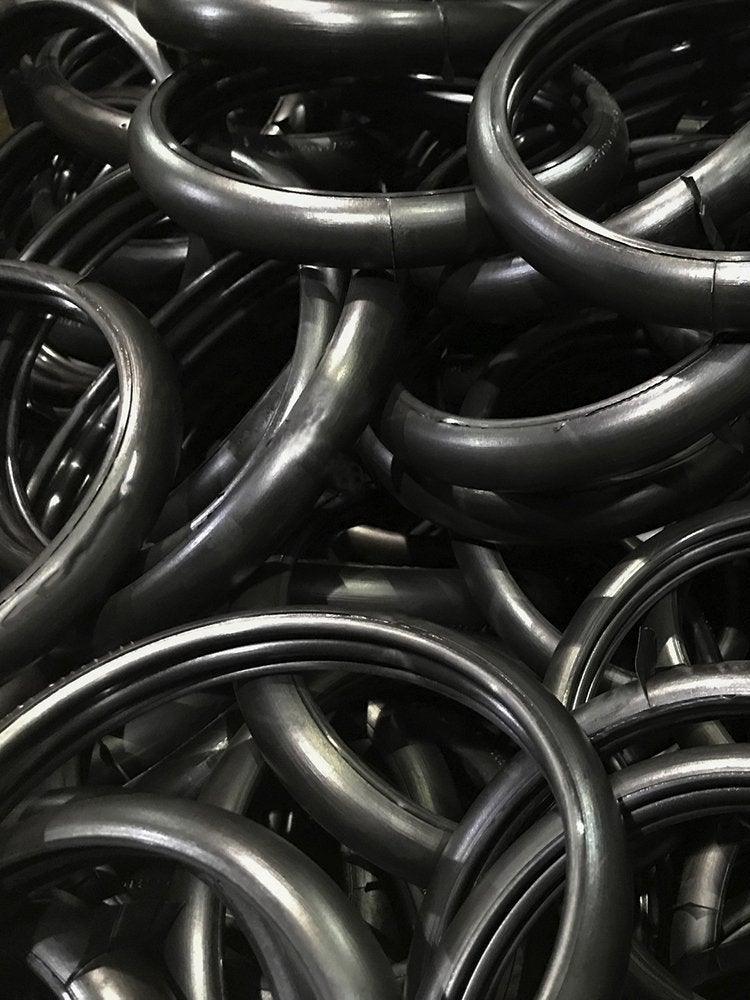
Rubber parts aren’t just for the dishwasher: There are also rubber gaskets and hoses in your refrigerator and other appliances throughout the house. As a general rule, wherever you find rubber, keep the vinegar away. The vinegar’s acid can eat away at rubber just as it does natural stone. Soap and water or a solution of soap and baking soda are the best grime busters for rubber parts.
Washing machine
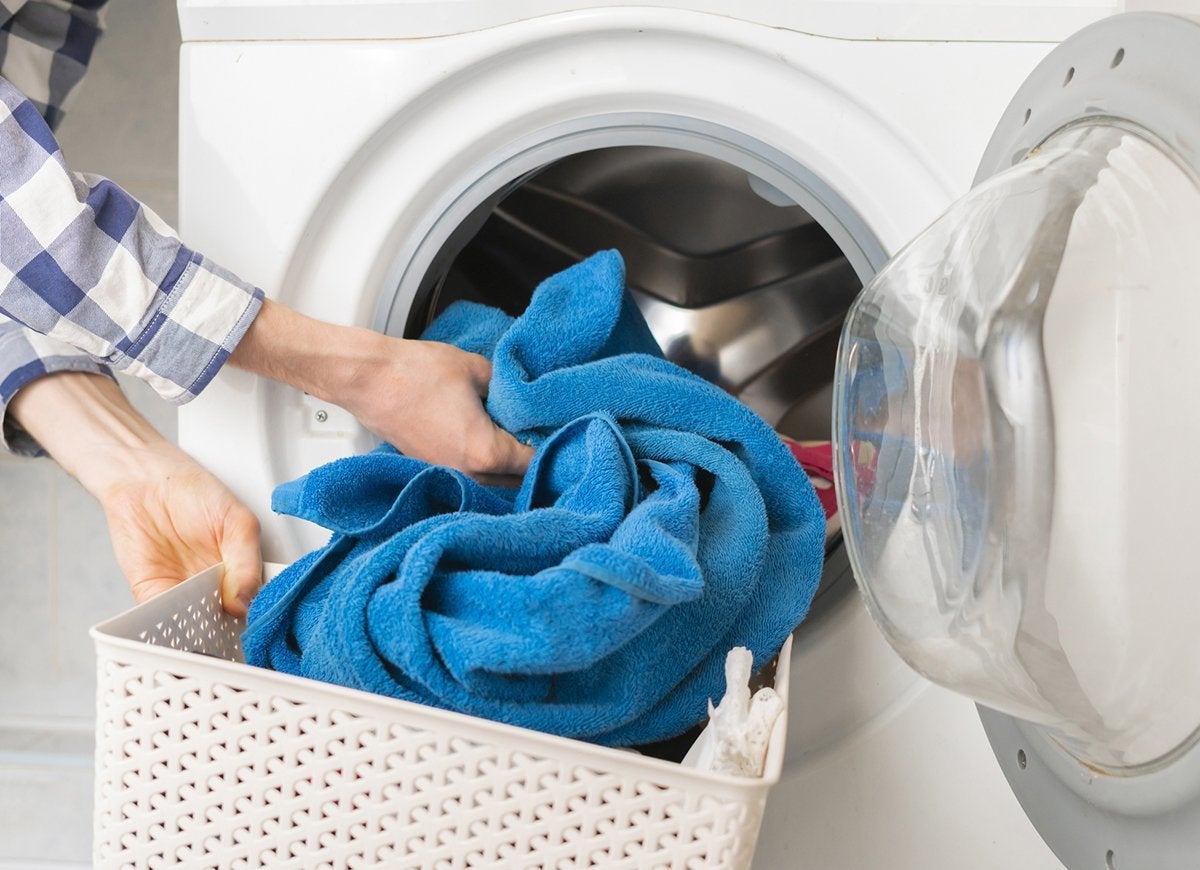
Just as it does in a dishwasher, vinegar can harm rubber parts inside a washing machine, which will eventually lead to leaks. Though laundering your clothes with vinegar is a cost-effective, natural way to soften and deodorize fabrics, avoid using it in your washer too frequently. There are other products for removing stubborn stains and odors out there that won’t mess up your appliance’s parts.
RELATED: 14 Things You Didn’t Know You Could Clean in Your Washing Machine
Clothes iron
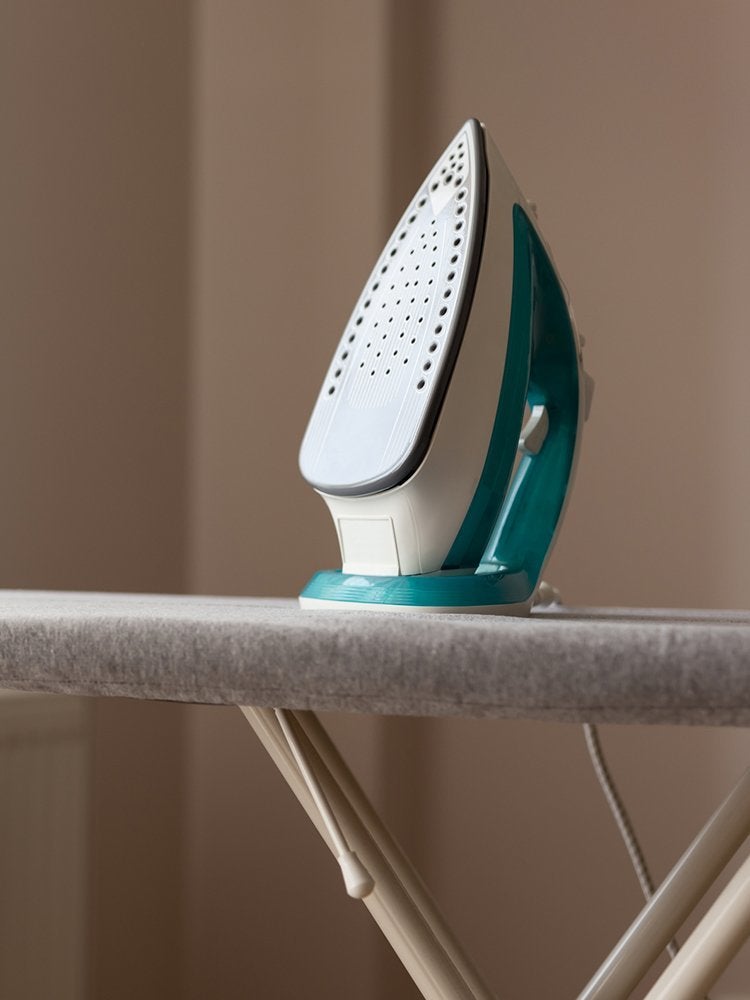
Filling your clothes iron with vinegar to clean it can irreparably damage the small appliance. While some iron manufacturers recommend using a vinegar solution to get rid of scale, it’s best to check the instruction manual for your iron to make sure the acid won’t damage its metal components. To cut down on future scale buildup, use only distilled water in the reservoir and empty it out after every use.
RELATED: How To: Clean an Iron
Waxed hardwood flooring
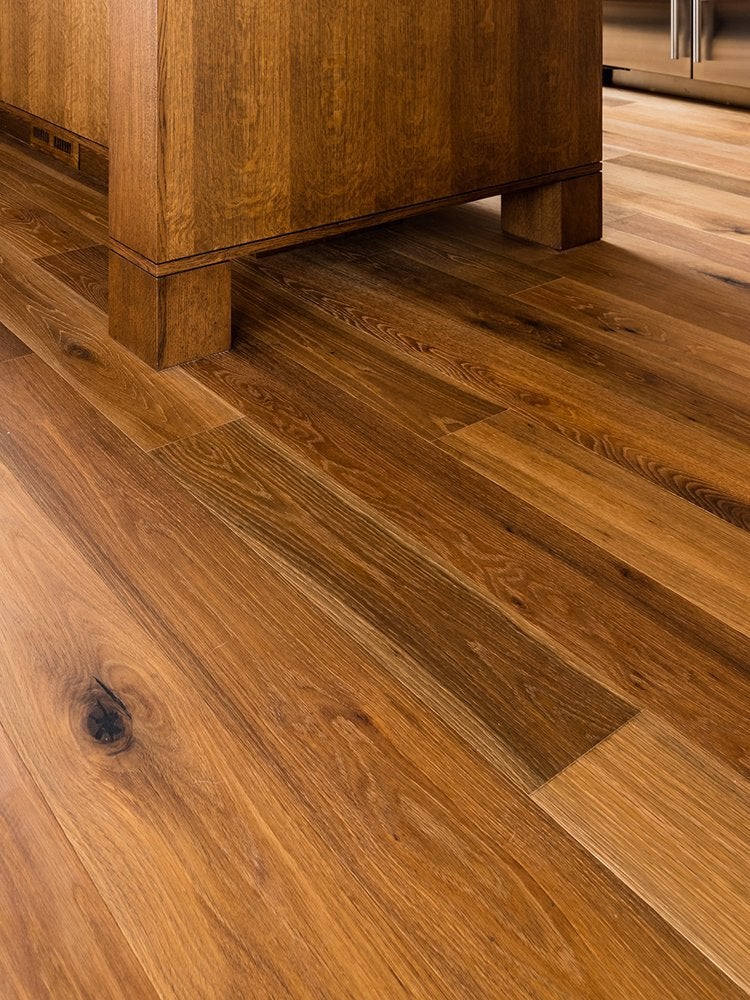
Some people swear by diluted vinegar for sanitizing and de-griming hardwood floors, while others are adamant that vinegar can damage a wax finish even when it’s diluted. Don’t take any chances. Choose a cleaning product that’s specially formulated for waxed wood floors. Avoid all-purpose cleaners unless they specifically say they can be used on wood surfaces.
Stone floors
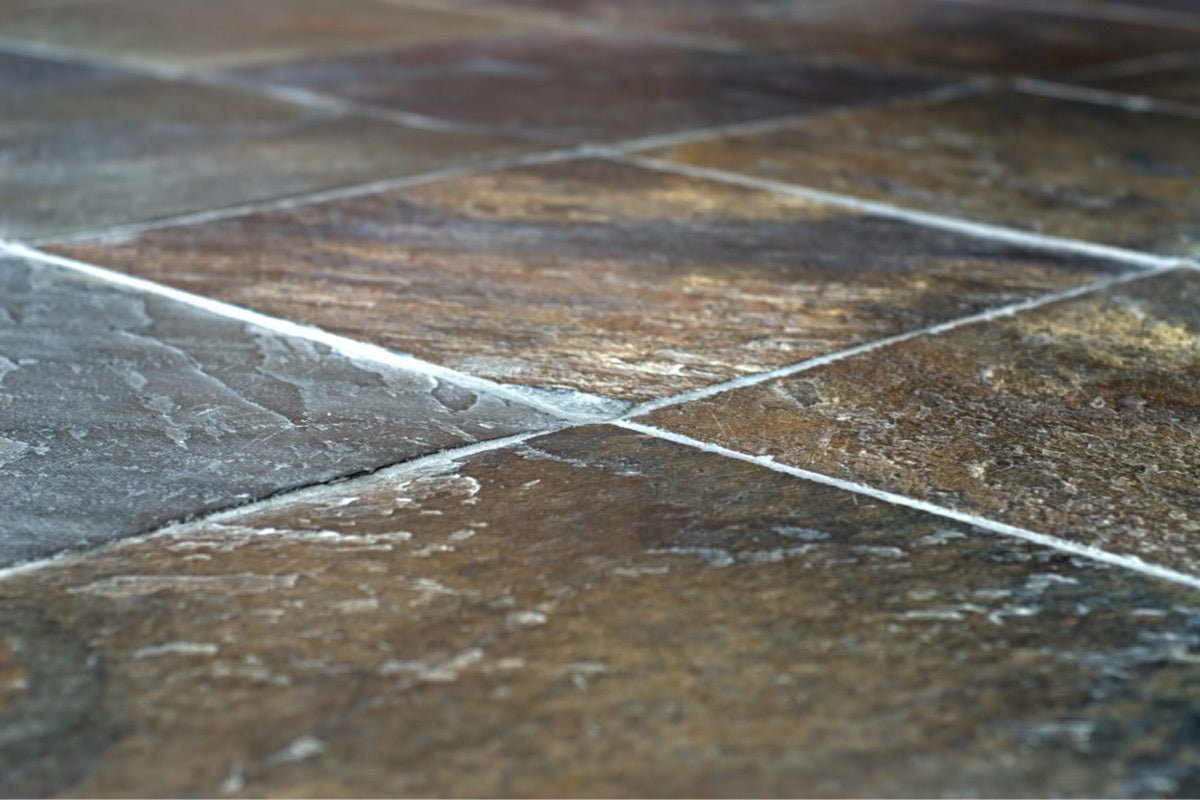
Don’t use vinegar on natural stone floors, such as slate, sandstone, and travertine. Acid cleaners can damage and discolor stone surfaces. Instead, be sure to sweep or vacuum regularly, and for deeper cleaning use either warm water and mild dish soap or cleansers specifically formulated for natural stone flooring.
RELATED: 7 Things All Homeowners Should Know About Travertine Tile
Unsealed or damaged grout
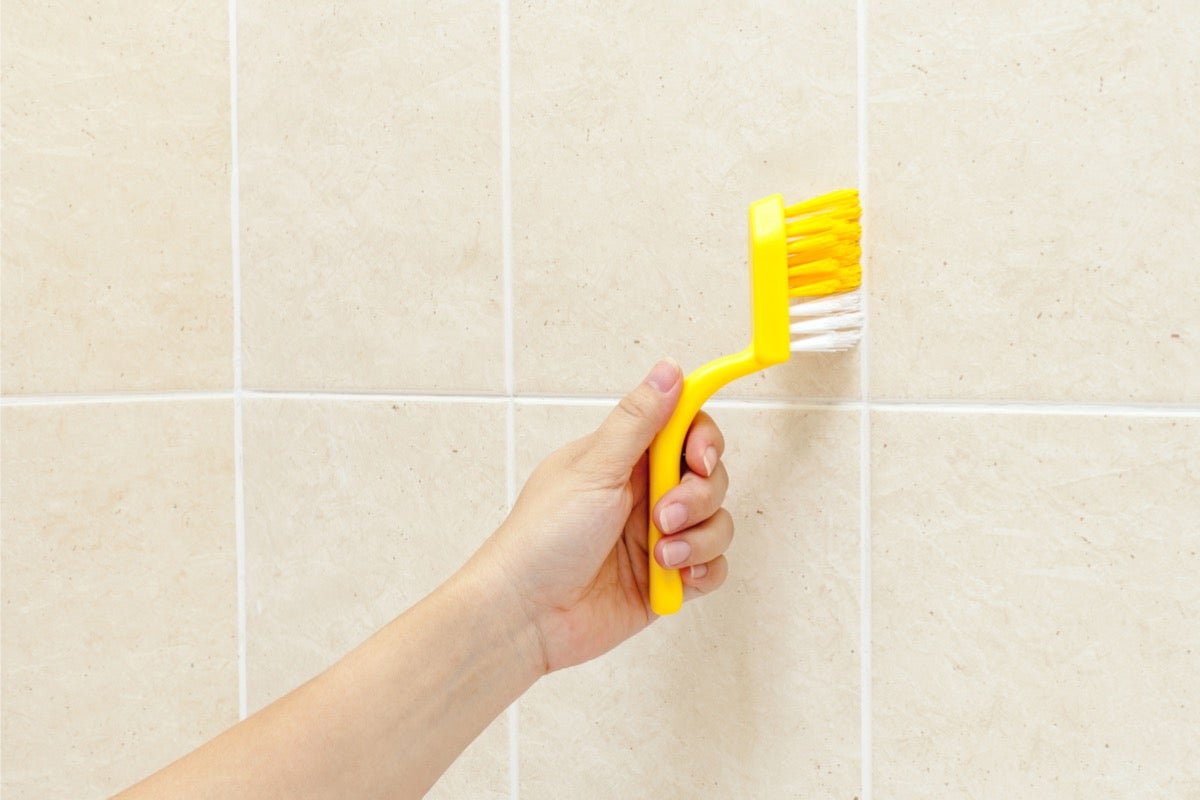
Because vinegar is such a gifted multitasker, it’s tempting to grab it whenever you need a little extra oomph—for instance, when you’re scrubbing the bathroom grout. While vinegar is effective at cleaning mold and mildew, it can damage unsealed or damaged grout. Your best bet is to reach for less acidic alternatives, such as hydrogen peroxide or oxygen bleach.
RELATED: 29 Handy Household Uses for Vinegar
Mirrors
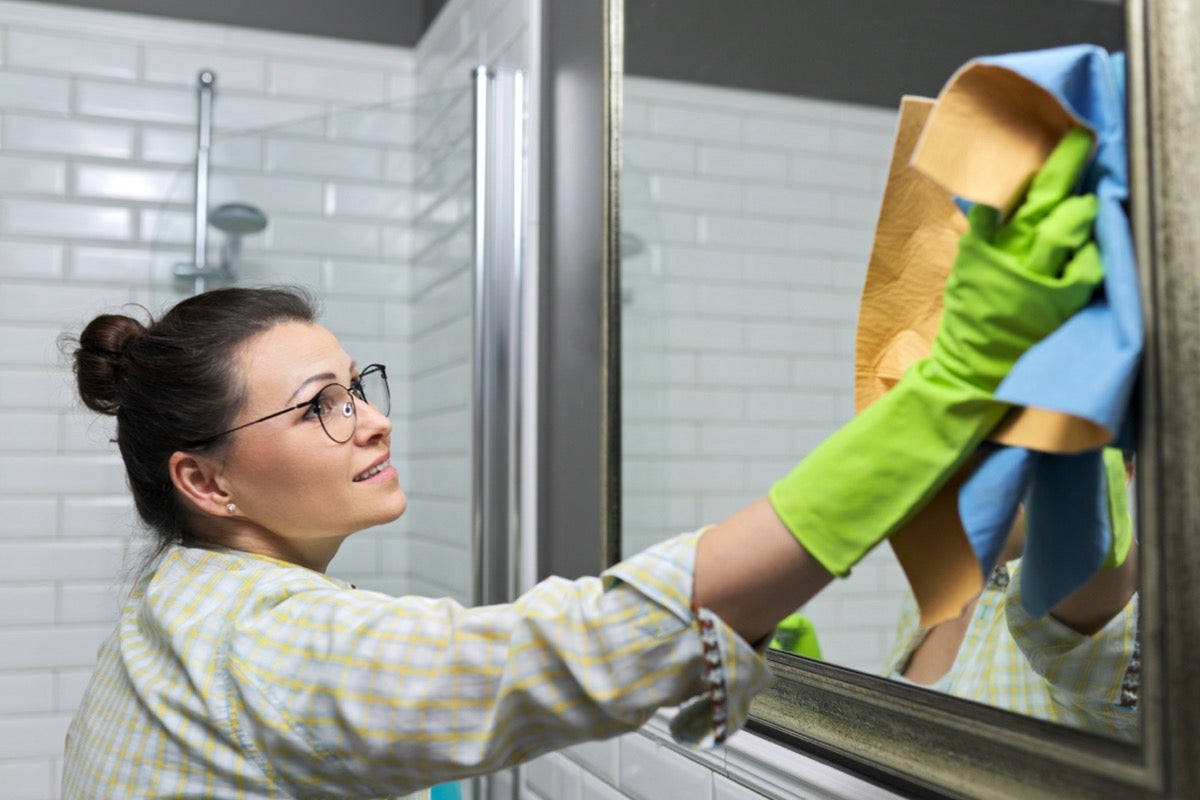
Avoid vinegar and other acids when you’re cleaning the bathroom mirror. The liquid can seep behind the glass and corrode the metal beneath that gives the mirror its reflective quality. Over time, this leads to unsightly dark spots and streaks along the edge of the mirror. Even with less acidic cleaners, don’t get too much moisture on the mirror, spray cleaning products on the cloth rather than the glass, and always turn on the exhaust fan when the shower is running.

Everything You Need for a Lush and Healthy Lawn
Keeping your grass green and your plants thriving doesn’t just take a green thumb—it starts with the right tools and supplies.
